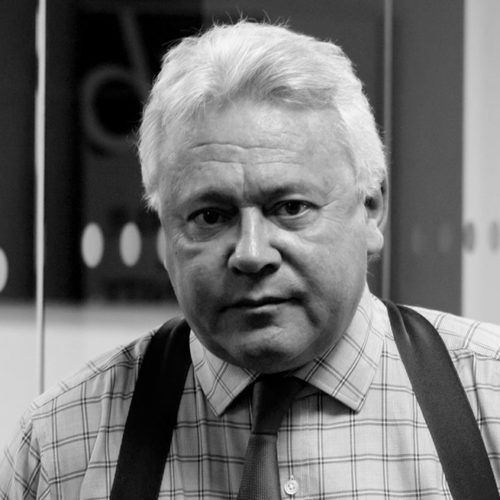Why should I write a Will?
Around 60% of people in the UK have not made a Will, they simply do not want to think about it. It is extremely important to make sure you and your family have a Will, should the worst happen.
Your Will tells everyone what you would want to happen to your possessions, money and property when you pass away. Collectively these are known as your ‘estate’. If you pass away without a Will, the law decides what happens to your estate, and this may not be what you would have wanted.
It is easy to make a Will, and it will save your relatives unnecessary distress at an already difficult time. A Will makes it much easier for your family or friends to sort everything out in line with your wishes. Without a Will, your friends and family may not end up inheriting certain aspects of your estate, plus having a Will can reduce the amount of Inheritance Tax your family will have to pay on your estate.
Writing a Will is especially important if you have children or financially dependent family, or if you want to leave something to friends or extended family.
Our dedicated solicitors, can advise you on the best course of action when writing your Will, and help by ensuring your Will is completely valid.
Your Will is important for letting your loved ones know your wishes:
- Who should have your property, money and possessions?
- Who will be in charge of organising your estate and following the instructions you leave in your Will.
- Instructions for other wishes, such as whether you would like to be buried or cremated.
For a Will to be valid it must:
- Show how your estate should be divided when you die.
- Be signed and dated by you and two witnesses.
- Be made when you are able to make your own decisions.
More complicated situations mean more time and thought needs to be taken when writing your Will, whereas if you want to leave everything to your immediate family, the process if relatively quick and easy.
Practicalities of Writing a Will
You must appoint Executors to deal with your estate in the event of your death and property must be held in trust e.g. while a beneficiary is a minor.
You can provide for specific funeral arrangements, which is particularly important for some clients. Some people ask for their body to be donated to medical research, especially those who have suffered from prolonged illnesses and want to help reduce other people’s suffering by helping to find new treatments in this way.
You can safeguard your children’s interests if they are a minor (under 18 years old) by appointing legal guardians to care for them if both parents have died e.g. in a car accident.
Personal items such as jewellery, paintings and heirlooms can be passed on in the Will and by reference to an informal letter of wishes.
If you want to, you can help charities by leaving a legacy or share of your estate to them, free of Inheritance Tax. Charities receive approximately £1.65bn per year from money left in Wills and it is an important source of funding for them.
Changes to the Inheritance Tax rules
Prior to October 2007, if the first spouse left their entire estate to the surviving spouse, this would pass free of Inheritance Tax thanks to the spousal exemption rules. However, this means that the first spouse’s Nil Rate Band (NRB) allowance was unused and therefore lost.
The Transferable NRB - In 2007, the chancellor announced a new regime. This allowed the use of two NRBs without requiring any formal tax planning in the Wills.
The new regime does not simply double the Nil Rate Band; it allows unused NRB to be transferred between spouses. To do this, the executors of the survivor’s estate must make a claim for the percentage of the unused allowance to be brought forward and applied to the estate of the surviving spouse.
Reducing the tax burden
Trusts may have long term tax advantages in cases where capital depreciation is anticipated to outstrip future increases of the nil rate band.
Wills can offer flexible solutions to complex problems
Family Arrangements - A Will can be a really helpful tool in solving some complex family issues e.g. to include children from previous marriages.
A Will can ensure that a second (current) spouse has the right to occupy the family home, while still protecting the capital for children of an earlier marriage. This will ensure that the assets don’t pass outside the immediate family and also may help prevent any potential challenges in the distribution of the estate.
Asset Protection - One of the implications of an ageing population is that thousands of homes are sold each year to fund the cost of residential care.
A carefully drafted Will can ensure that a share of the family home passes into a trust on first death, which may give the survivor a right to occupy.
The Trust will make sure that the capital will be preserved from nursing home fees and will pass to the intended beneficiaries instead. This kind of Trust can be drafted flexibly to allow the survivor to downsize or move property.
Trusts can protect assets for future generations- if your child or grandchild suffers financial or matrimonial problems, or if beneficiaries are not mature or responsible enough to own large amounts of money, a Trust can come in handy. The Trustees will take each beneficiary’s personal circumstances into account.
Businesses
Your Will can ensure that business interests you have e.g. shares in a family business, or a farm are directed to those intended such as sons or daughters who have come into the business.
An important Inheritance Tax relief may apply to these business interests and providing discounts of either 50% or 100% (complete exemption).
When it comes to your house or other non-business assets, you can give them away without having to pay an IHT charge if they are ‘potentially exempt transfers’ (PETs). The vital point regarding PETs is that they have to be given away seven years before your death.
In terms of business assets, it is usually only necessary for the person to have owned these assets for two years, rather than the required seven years for the non-business assets.
So don’t risk paying a substantial tax bill when this can be reduced by carefully drafting you Will.
Other considerations
Many people own their house as “joint tenants”. This is one of two ways in which you can own your house. You could also own it as “tenants in common”. To own your home or other assets as “joint tenants” can be an inflexible method because the surviving co-owner automatically takes everything.
Therefore, a co-owner cannot, during lifetime or by Will, give these assets to any other beneficiaries, for example to his children to utilise the nil rate band.
The solution is to hold as “tenants in common” and if the holding is already as joint tenants, it can be changed by a rather simple process.
Remember that in a two year period following the death, the terms of a Will can be varied or disclaimed by an appropriate document entered into by the persons involved. However, this may be prevented by changes in the law.
Making a Will doesn’t need to be expensive. Most solicitors charge a reasonable fee for a straightforward Will. Where the Will achieves valuable tax savings, this will normally be reflected in the fee but the savings may be vast.
Efficient and clear
Mr Ward
Mr Ward
Patience and Understanding
Mr Morris
Mr Morris
Approachable, Friendly & Professional
Mrs Lovatt
Mrs Lovatt
Making my Will was made so easy
Mrs Fergus
Mrs Fergus
So Good
Mr Booler
Mr Booler
Friendly, Professional & Really Listened
Mrs Davies
Mrs Davies
Working with a smile
Mrs Little
Mrs Little
Compassionate
Mr Stubbs
Mr Stubbs
Very Happy
Ms Pagan
Ms Pagan
Friendly and Professional
Mr Slater
Mr Slater
Excellent Service Throughout
Mr Beetenson
Mr Beetenson
Impressive All-Round Service
Mr & Mrs Wragg
Mr & Mrs Wragg
Understanding, Helpful & Efficient
Ms Hood
Ms Hood
Friendly, Efficient & Clear
Mrs Dunne
Mrs Dunne
Friendly Staff
Ms Mason
Ms Mason
Clear & Understandable Explanation
Mr & Mrs Ellis
Mr & Mrs Ellis
Thank you
Mr Handley
Mr Handley
Clear, Friendly, Efficient Advise
Mrs Dyett & Mr Howard
Mrs Dyett & Mr Howard
Helpful and Friendly
Ms Webster
Ms Webster
Friendly and Clear
Ms Fairclough
Ms Fairclough
Excellent Company and Staff
Ms Vivian
Ms Vivian
Would be Happy to Recommend
Mrs Riley
Mrs Riley
Polite and respectful
Mr Rains
Mr Rains
Incredibly Helpful and Understanding
Miss Pearson
Miss Pearson
Made a Difficult Task Easy
Ms Cooper
Ms Cooper
Excellent and very informative
Mrs Gill
Mrs Gill
Highly Satisfied
Mr Allen
Mr Allen
Easy to understand
Mrs Coates
Mrs Coates
A polite and caring service all the way through, from receptionist to solicitor
Mr & Mrs Williams
Mr & Mrs Williams
Everything went smoothly
Mr & Mrs Horsfield
Mr & Mrs Horsfield
Very patient
Mrs Greaves
Mrs Greaves
Always Impressed
Miss Cassy
Miss Cassy
Friendly & Approachable
Mrs Misiukanis
Mrs Misiukanis
Professional
Mr & Mrs Lindley
Mr & Mrs Lindley
I was Listened to Carefully
Mrs Booth
Mrs Booth
Friendly and Pleasant Staff
Mr Osborne
Mr Osborne
Kind and helpful
Mrs Woolley
Mrs Woolley
Pleasant and Professional Staff
Mrs Ledger
Mrs Ledger
Clear, Professional, Friendly Service
Mr & Mrs Spencer
Mr & Mrs Spencer
Friendly, Competent and Totally Professional
Mr & Mrs Greensides
Mr & Mrs Greensides
Excellent Advice
Mrs Cheney
Mrs Cheney
A Country Mile
Ms Hooley
Ms Hooley
Very friendly, but still professional
Ms Walker & Mr Birchall
Ms Walker & Mr Birchall
Excellent service throughout, friendly and professional
Miss Arblaster
Miss Arblaster
Excellent Service
Mr Johnson
Mr Johnson
Excellent quality of service
Mr Stones
Mr Stones
Wonderful, Chatty and Helpful Staff
Mr & Mrs Jones
Mr & Mrs Jones
First Class as Always
Mr & Mrs Swift
Mr & Mrs Swift
Excellent customer service, would recommend without hesitation
Mr Gower
Mr Gower
Approachable and Knowledgeable
Mrs Brook
Mrs Brook
Kind and Understanding
Mrs Senior
Mrs Senior
Friendly, Courteous and Understanding
Ms Thwaite
Ms Thwaite








